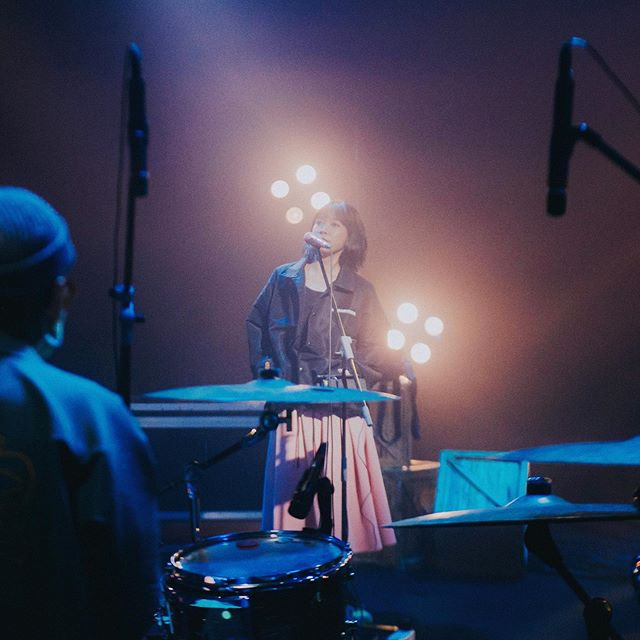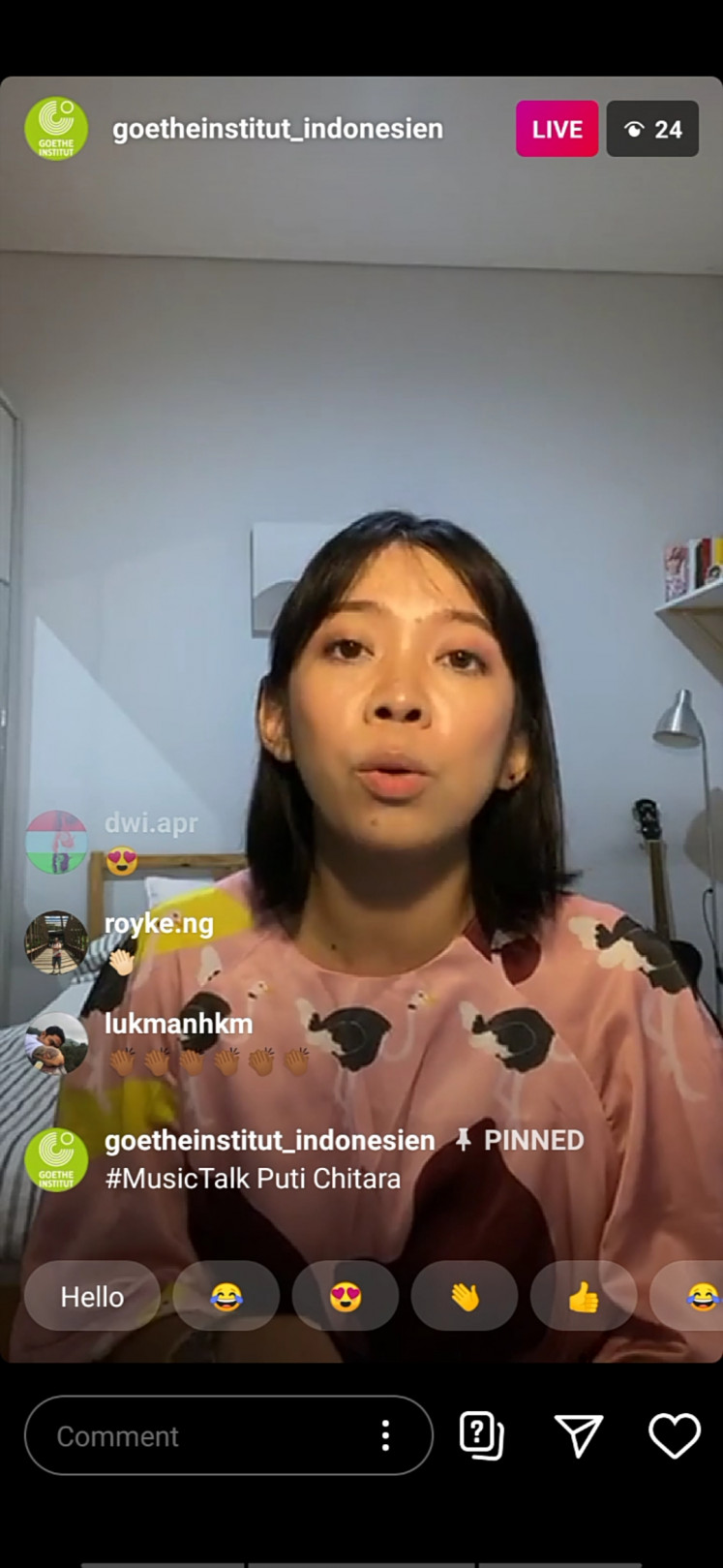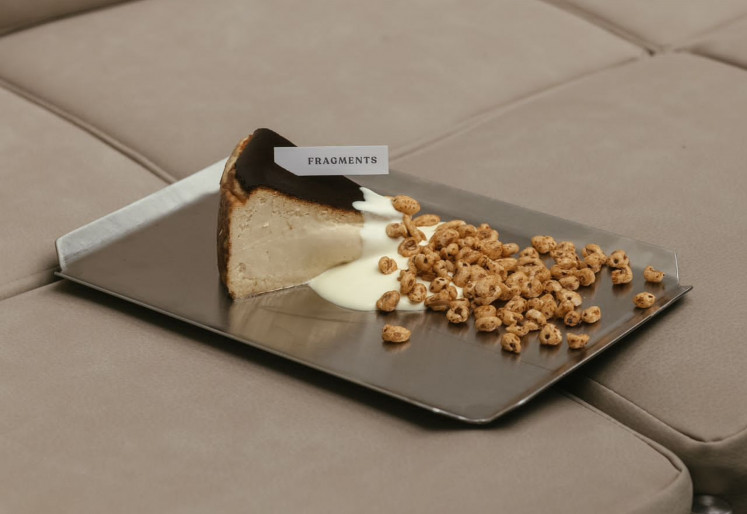Popular Reads
Top Results
Can't find what you're looking for?
View all search resultsPopular Reads
Top Results
Can't find what you're looking for?
View all search resultsPuti Chitara on staying true to the art of music
Puti’s start in independent music came when she returned from her studies in Japan, where she majored in comparative musicology.
Change text size
Gift Premium Articles
to Anyone
I
ndonesian indie-folk music hipster fans might have heard the soft, dreamy vocals of singer-songwriter Puti Chitara at least once.
If the name does not ring a bell, then you might be familiar with the band Barasuara, for which she lends her vocals alongside guitarist-vocalist Iga Massardi.
Vocals for the art: Puti Chitara during one of her performances. (Instagram/PutiChitara/-),“I’ve been making music independently since 2010 [...] releasing songs I’ve written since high school. I did it myself, recording in my room and distributing the tracks on my own,” she told her audience during an Instagram Live session held by the Goethe-Institut.
Puti grew up in a family of musically inclined individuals. Her mother, Dina Megawardani, was the drummer for the 1970s all-female band Pretty Sisters.
Puti said her mother was a huge source of inspiration for her, as she was the first figure Puti considered “super cool”.
Puti also counts Isyana Sarasvati, Ify Alyssa and Monita Tahalea in her list of inspirational Indonesian female musicians, as well as Karen Carpenter and Utada Hikaru to name a few of her other influences.
Puti’s start in independent music came when she returned from her studies in Japan, where she majored in comparative musicology.
Direct interaction: Puti Chitara answers questions from fans during a live streaming session organized by German cultural center Goethe Insititut. (JP/Josa Lukman)However, during her time abroad, Puti also submitted her demo tapes to several Japanese labels like Sony and Avex, some of which made it to the final auditions.
“But maybe it wasn’t my time there and I had to return to Indonesia, so I thought to myself, ‘why don’t I just make music in Indonesia?’. If there is ever a chance to make music abroad, I wouldn’t say no, but at that time, I just had to return home.”
She then revealed that some of her friends in Japan had decided to stay and work there and that she had the same choice to make but instead chose to return as she wanted to use her knowledge to contribute to the Indonesian music scene.
The turning point came in 2014 when she released her debut album Sarsaparilla Dream and joined Barasuara at the invitation of Iga.
Her second album Goodnight came in 2017, with several singles released prior to the launch. However, she said, her next album’s release this year was delayed due to recent events.
Puti conceded that the pandemic had affected the lives of many musicians, including hers, as their days used to be spent on stage.
“With the loss of that stage, we definitely have to stay at home, along with facing some financial issues. Still, we have to be creative and even if we’re not performing on stage, we can still make music at home.”
Moving on, Puti said she was often asked to speak at universities on how to be a musician and whether musicians could truly make a living from their art.
“Truthfully, I never thought I’d be a musician, as when I was in university – even though it was for musicology – the thought of being a performer never crossed my mind. At one point, for some reason, I just decided to get into it,” she recalled, noting that consistency, confidence and networking were key to being a musician.
Another thing, Puti added, was keeping up the quality of one’s music.
“If you want to be a musician because you want to be famous, that’s OK, as everyone has their reasons and dreams. I personally want to be a musician because I like creating; it makes me happy when people listen to my music and appreciate my work. Money is just a bonus,” she said.
“I also really believe in luck, as we never know when something is going to be widely accepted and popular.”
As for her music, Puti acknowledged that hers is rather “segmented”, as people have told her. On the flip side, her work with Barasuara is much easier to access.
Some of the songs she performed during the one-hour session reflect that, such as “Sarsaparilla Dream”, which she said was about finding one’s direction in life. “Goodnight” was rather closer to her heart, as the song was dedicated to her firstborn, which she miscarried.
She also acknowledged that as a female musician, she felt that she was expected to look attractive at all times. If you have average skills, she said, then it was harder.
“And in the time of social media, selling music isn’t all about good music but also selling your personality and looks. And there’s that pressure to be beautiful; I don’t even know what being ‘beautiful’ is supposed to be like, because I keep focusing on how to make good music,” she said.
Still, disparaging remarks about her appearances kept coming. One organizer even declined to sign her for an event because of her appearance, the number of followers she has, or the hype she generates.
“It’s really sad because I just wanted to make music. But again, at the end of the day, you have to be able to sell the whole package. And there are a lot of female soloists who are still true to themselves and their art, which I appreciate.”













